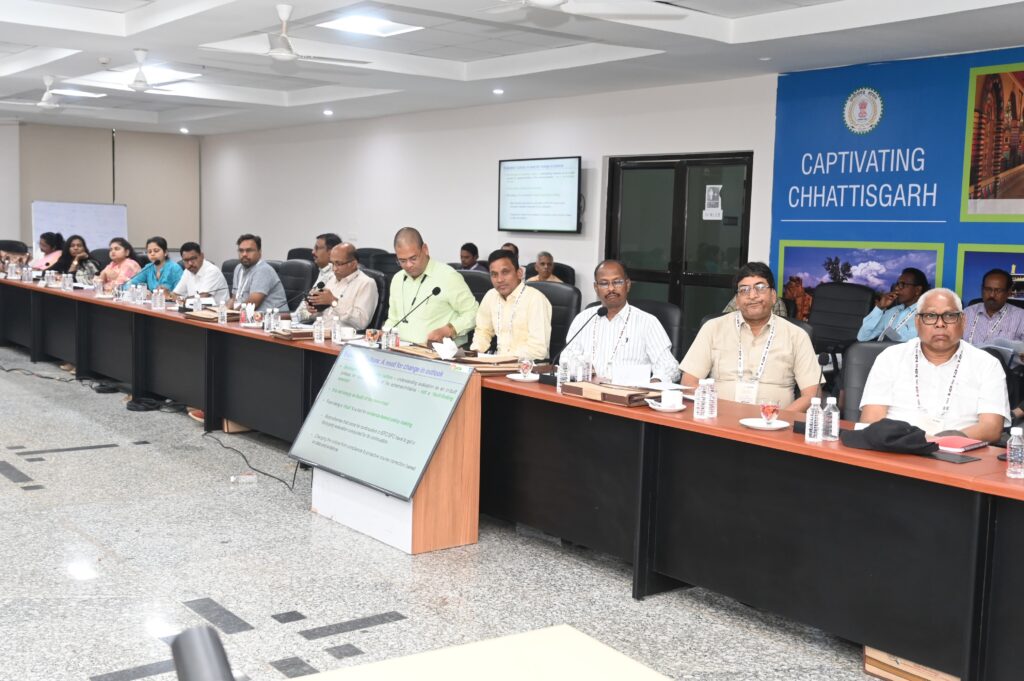Two-Day Workshop on Monitoring and Evaluation Successfully Concludes by State Policy Commission, Chhattisgarh

Raipur, March 21
A two-day workshop on Monitoring and Evaluation, organized by the State Policy Commission of Chhattisgarh in collaboration with the Development Monitoring and Evaluation Office (D.M.E.O.) of the Government of India, concluded successfully today. Held on March 20 and 21 at the conference hall of the Chhattisgarh State Policy Commission in Atal Nagar, Nawa Raipur, the purpose of this workshop was to strengthen the monitoring and evaluation system of government schemes, make policy-making data-driven, and enhance the effectiveness of programs. The training focused on evaluation—why, when, and how it is important for ensuring the effectiveness of government schemes and programs.
The workshop provided state government officials with insights into the core principles of monitoring and evaluation. Training sessions were held on tracking the progress and effectiveness of schemes and analyzing outcomes. Discussions also covered scientific approaches to evaluation, the use of logical frameworks and the theory of change to measure the impact of programs, data collection methodologies, and the use of data analytics for effective policy-making. Detailed lectures were given on the challenges and solutions in evaluation.
In the workshop, detailed information was provided on the importance of program/scheme evaluation, its various types, methods, frameworks, and quality assurance. Experts explained that effective evaluation not only helps analyze the success or failure of programs but also provides actionable steps for improvement.
During the training, discussions took place on data collection, analysis techniques, and best practices in monitoring and evaluation. Officials were also introduced to important aspects such as impact evaluation, process evaluation, and outcome evaluation.
Dr. K. Subramanyam, Member of the State Policy Commission, stated that the commission is working on institutional capacity building for evaluation and strengthening inter-departmental coordination. In the future, these measures will play a crucial role in making policy-making more data-driven and effective. Dr. Subramanyam emphasized that transparent and accurate evaluation is essential for improving the effectiveness of government programs. This training will help officials play a significant role in policy-making and program implementation.
On the closing day of the workshop, Dr. Neetu Gordia, Member Secretary of the State Policy Commission, expressed gratitude to all participants, trainers, and the D.M.E.O. team. She mentioned that the State Policy Commission and D.M.E.O. will organize more such workshops in the future to further strengthen the data-driven governance system in Chhattisgarh.
During the workshop, Shri Abhinash Das, Director of D.M.E.O., Government of India, and his expert team gave presentations and discussions on Output-Outcome Monitoring Framework, Data Governance Quality Index, Logical Framework, and Monitoring and Evaluation.
Senior officials from various state and district-level departments, including Governance & Convergence, Higher Education, Women and Child Development, Panchayat, Public Health Engineering, School Education, Food Department, Urban Administration, and Planning, participated in the workshop.
